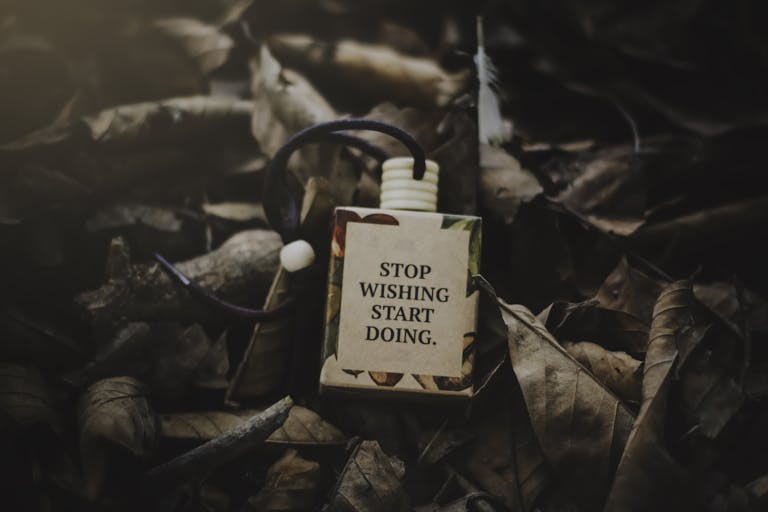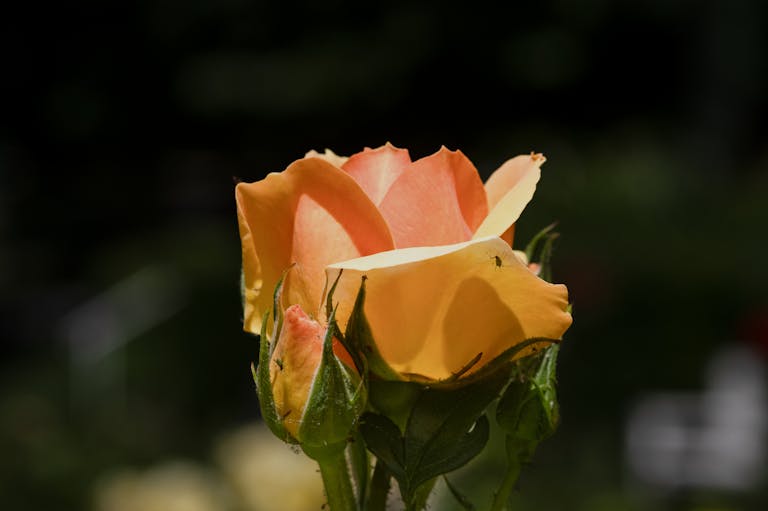Heidegger’s Question of Being Made Simple for Everyday Wonder About Existence
Most of the time, we’re so caught up in the daily rush—answering emails, cooking dinner, stressing about bills—that we rarely stop to notice the biggest thing of all: the fact that we exist.
That simple “being here” is so obvious it slips right past us. Martin Heidegger, a German philosopher, thought this was a huge mistake. He believed that before we ask any other big questions—about God, science, happiness, or even the meaning of life—we should first pause and ask: what does it mean to exist at all? It sounds abstract, but it’s actually the most down-to-earth question you can imagine.
Think about those moments when life suddenly feels strange—like looking in the mirror too long and realizing, “Wait, I’m actually alive.” That little jolt of awareness is what Heidegger wanted us to lean into. Not to solve, but to wonder about, again and again.
What Heidegger Really Meant
The difference between beings and Being
Here’s the first thing to get straight: Heidegger noticed that we talk about individual things all the time—dogs, phones, galaxies, traffic jams. These are what he called “beings.” But we almost never think about Being itself, the fact that things exist in the first place. It’s like we’re so distracted by the items in the room that we forget to notice the light that makes them visible.
That’s a mind-bender when you sit with it. Imagine walking into a dark room and flipping on the switch. Suddenly you can see the furniture, the pictures, the random pile of laundry. Usually, we focus only on the stuff in the room. But Heidegger says: don’t forget the light. Without it, nothing would appear. Being is that light—the condition that allows everything else to show up as real.
Why this question matters for real life
Now, you might be thinking, “Okay, cool metaphor, but why should I care?” Here’s why: if you forget the light, life becomes flat. When we only focus on beings—on things—we start living on autopilot. Work, errands, repeat. But when we remember Being, life gets a little deeper, even mysterious.
Think about the last time you were struck speechless by a sunset. Or when you held a newborn and thought, “How is this even possible?” That’s not just sentimentality—it’s a brief glimpse into what Heidegger means. We’re not just managing things in the world; we’re part of the miracle that there is a world at all.
Everyday examples of Being sneaking in
- You’re sitting at a red light, bored out of your mind. Then, for some reason, you notice the way the clouds move across the sky. For a split second, the ordinary becomes astonishing.
- You’re at a funeral, and the reality of someone’s absence makes your own existence feel fragile but also strangely precious.
- You’re doodling, writing, or playing music, and suddenly it feels like something bigger is moving through you—like you’re participating in existence, not just stuck in it.
These aren’t random mood swings; they’re signs that Being is always humming in the background, waiting for us to notice.
The trap of forgetting Being
Heidegger thought most of Western history had fallen into what he called the “forgetfulness of Being.” Basically, we’ve gotten so obsessed with tools, technologies, and explanations that we treat the world like a giant warehouse of stuff to use. It’s efficient, sure, but it squeezes out wonder. Think about how often we scroll endlessly on our phones just to fill empty space. That’s not really living; that’s hiding from the question of Being.
He wasn’t saying technology is evil—he was warning us that if we only see existence as resources, we risk losing touch with life’s mystery. And once that mystery goes, so does depth, awe, and maybe even joy.
So, what do we do with this?
Heidegger didn’t want us to come up with an answer like “Being = X.” He wanted us to stay with the question. To keep wondering. Because the moment we box it up into a neat definition, we lose the freshness of it.
It’s a little like asking, “What’s love?” You can list brain chemicals, social functions, or romantic traditions, but none of that captures what it feels like when your chest actually tightens and you can’t stop smiling. The reality of love is bigger than the definition. Same with Being.
The real challenge—and the gift—is learning to live in a way that keeps the question alive. Not as a burden, but as an opening. It’s like carrying around a flashlight that can suddenly make the familiar world look brand new.
So next time you catch yourself zoning out in line at the grocery store, try this: instead of diving for your phone, pause. Notice the hum of the fridge, the stranger’s tired face, your own breathing. Ask quietly, “What does it mean that all this is?” That’s not philosophy class—that’s everyday Being showing up, waiting to be noticed.
Everyday Gateways Into Wonder
If all this talk about “Being” still feels kind of floaty, don’t worry. Heidegger himself admitted that the question is slippery. But here’s the thing: you don’t need to be in a philosophy seminar to actually experience what he’s talking about. Everyday life is packed with little cracks where existence itself peeks through. You’ve already had these moments—you just might not have thought of them as philosophical.
I like to think of these as everyday gateways into wonder. They’re the simple experiences that suddenly wake you up from autopilot and remind you: Oh yeah, I’m alive, and the world is here. Heidegger wasn’t trying to get us lost in word games; he wanted us to pay attention to these kinds of moments. Let me walk you through a few of them, and maybe you’ll notice how often they happen in your own life.
Moments of awe
Think about the last time you stood under a sky so full of stars it almost made your stomach drop. You didn’t have to understand astrophysics to feel it—something about that vastness hit you straight in the chest. You suddenly felt small, yes, but also connected, as if you were part of something too big to name. That mix of fear and wonder? That’s Being nudging you.
It doesn’t have to be cosmic, either. Watching a leaf fall can do the trick. There’s nothing extraordinary about it, but for some reason, in that instant, you feel the mystery of life itself. It’s not the object that’s special—it’s the way Being suddenly shines through it.
Confronting mortality
Death is the ultimate gateway, and Heidegger knew it. When we lose someone close or when we brush up against our own limits, life gets painfully real. That usual hum of routines and to-do lists cracks, and suddenly we see existence differently.
I remember going to a friend’s funeral and feeling this strange double awareness. On the one hand, grief was heavy. On the other hand, every laugh, every hug, every breath I took on the way home felt charged with significance. It was like I was tuned in to a frequency I usually miss. Heidegger would say that this confrontation with mortality wakes us up to the fragility and urgency of Being.
Routine interruptions
Ever had a moment where the ordinary suddenly feels strange? Like staring at your own reflection too long until you think, “Wait, that’s me?” Or waking up in the middle of the night and noticing the silence, the oddness of just being here? These little jolts are mini reminders that we can’t take life for granted.
Heidegger called this mood uncanniness—when the familiar suddenly feels unfamiliar. It’s unsettling, but it’s also a gift, because it makes you realize that existence isn’t just background noise. It’s mysterious, even when it’s wrapped in the ordinary.
Encounters with silence
We live in a noisy world—constant notifications, conversations, entertainment on tap. Silence is rare, but it’s powerful. When you sit in it long enough, without scrambling to fill the space, the fact of Being itself can sneak up on you.
I once sat alone in a cabin for a weekend with no Wi-Fi. The first day was unbearable. By the second, I started noticing the creak of the wood, the slow rhythm of my breath, the way the light shifted through the trees. By the third, silence felt alive. What I realized is that silence doesn’t mean “nothing happening.” It means everything else comes into focus.
Creative breakthroughs
Have you ever lost yourself in painting, writing, music, or even solving a tricky problem? That rush where time disappears and you’re just in it? Heidegger might say that in those moments, you’re not just making something—you’re encountering Being in a fresh way. Creativity isn’t about control; it’s about openness, letting something bigger come through.
The funny thing is, these gateways aren’t rare. They’re everywhere. The trick is noticing them and not brushing them aside. Heidegger’s whole point was that we don’t need to invent wonder; we just need to stop forgetting it. The gateways are already there, hidden in plain sight.
So maybe the next time you find yourself overwhelmed by emails or stuck in traffic, you can treat those pauses as an invitation. Look around. Feel the strangeness of it all. Ask yourself, without rushing to answer: what does it mean that this is? That’s Heidegger’s question, made simple.
Living With the Question
So here’s the catch: Heidegger didn’t want us to treat the question of Being like a math problem with one neat solution. He wanted us to live with it. That sounds kind of frustrating at first, doesn’t it? We’re used to wanting answers, closure, clarity. But what if the value of the question isn’t in solving it, but in letting it shift the way we live?
A question to carry, not to conquer
I’ll be honest: when I first dipped into Heidegger, I kept waiting for the “answer page.” You know, the one where he just tells us what Being is. Spoiler: it never comes. Instead, he keeps circling back, opening the question in new ways. At first, it drove me nuts. But then I realized—maybe that’s the point. If Being is the condition for everything, how could there be one tidy answer?
Think of it like music. You don’t listen to a song just to get to the final note. The meaning is in the whole unfolding. The question of Being works the same way—it’s not about the conclusion; it’s about how staying with the question reshapes the way you hear and see the world.
Slowing down to notice
Living with the question starts with slowing down. Not in a cliché “just relax” kind of way, but in actually pausing enough to let things show up as they are. When you rush, everything turns into blur: tasks, people, even your own feelings. When you slow down—even briefly—you give Being a chance to surface.
One of my favorite ways is taking short walks without headphones. Just walking, noticing. Sometimes it’s dull, sometimes I catch myself overthinking, but every so often the world feels suddenly fresh: the crunch of gravel, the way shadows fall. That’s not me finding a “deep truth.” That’s just me letting Being show itself.
Living with openness
To live with Heidegger’s question also means resisting the urge to box everything in. We love categories, labels, and definitions—they make life manageable. But they can also flatten things. If I label someone “difficult,” I might miss the full richness of who they are. If I label a day “boring,” I might miss the tiny wonders hidden inside it.
Openness doesn’t mean naivety. It just means approaching life with the sense that it’s always more than we assume. Heidegger would say that’s exactly what Being demands of us: to keep seeing existence as a mystery, not just as a resource or a checklist.
Practicing wonder in daily life
Here are some simple ways to live with the question without turning it into homework:
- Pause once a day to notice something ordinary in detail—a coffee cup, a tree, your own breath—and ask, “What does it mean that this is here?”
- Let silence exist. Don’t rush to fill every gap with noise. See what shows up in the quiet.
- Notice moments of uncanniness, instead of brushing them off. That weird feeling of “Wait, this is real?” isn’t a glitch—it’s a glimpse.
- Treat creativity, play, and curiosity as invitations into Being, not just hobbies.
Why this matters
At the end of the day, living with the question makes life richer. It doesn’t magically fix your problems, but it changes your relationship to them. Instead of life being a flat line of tasks, it becomes textured. You start noticing that even in the middle of stress, the fact that you are—that you exist at all—is already astonishing.
And maybe that’s enough. Not an answer, but a shift. Heidegger didn’t give us a manual for life. He gave us an opening, a way of looking. And once you catch sight of Being—even in fleeting moments—you can’t quite unsee it. It keeps tugging at you, inviting you to wonder again.
Final Thoughts
Heidegger’s question of Being isn’t something you solve and move on from. It’s something you carry. The world is full of beings—objects, tasks, relationships—but beneath all of that is the mystery of Being itself, the fact that anything is here at all. When we notice it, life feels deeper, stranger, and more alive. And the best part? You don’t need a philosophy degree to experience it. You just need to pause, look around, and let yourself wonder.





